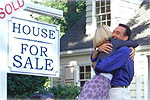Procedure for Purchase



This page covers some brief information on the procedures to buy or purchase property in Singapore. Tips for foreigners or investors buying apartment, house or other properties in Singapore.
Please also read our Expatriates FAQ for more information.
Eligibility to Buy Private Property
In the year 1973, the Singapore Government has imposed restrictions on foreign ownership of all private residential property in Singapore. Such ownership is governed by the Residential Property Act.
The Act aims to give Singaporeans a stake in the country by being able to buy and possess their own residential property at an affordable price and also encourage foreign talent by allowing permanent residents and foreign companies who make an economic contribution to Singapore to purchase such properties for their own occupation.
The Residential Property Act (RPA) is then amended on 19 July 2005 to allow foreigners to purchase apartments in non-condominium developments of less than 6 levels without the need to obtain prior approval.
For restricted property such as vacant land, landed properties such as bungalows, semi-detached and terrace houses, prior approval is still needed if foreigners wish to buy. Landed properties is a special class of residential property that Singaporeans aspire to own, and should remain restricted. Foreigners need to apply for approval from Singapore Land Authority before buying.
If you are a foreigner (or expatriate) and you wish to purchase a restricted residential property, you need to download the application form at www.sla.gov.sg You can submit the form together with the relevant supporting documents such as your entry and re-entry permits and qualifications to:
Land Dealings (Approval) Unit
No. 8 Shenton Way,
#27-02 Temasek Tower,
Singapore 068811
What are the non-restricted residential properties?
Foreigners are not restricted from acquiring:
- Developments approved as a condominium development under he Planning Act
- A flat in a building of 6 levels or more including the ground level and any level below the ground level including HUDC Phase I, Phase II flats and privatised HUDC Phase III and IV flats
- A leasehold estate in restricted residential property (refer to A) for a term not exceeding 7 years including any further term which may be granted by way of an option for renewal
What are the restricted residential properties?
Foreign persons (including natural persons, foreign companies and societies) are restricted from purchasing:
- Vacant land
- Landed residential property, such as bungalows, terrace houses, semi-detached houses
- Residential property in a building of less than 6 levels
Other restricted properties
- A HDB Shophouse
- A HDB flat purchased directly from HDB
- A resale HDB flat where HDB has consented to the sale
- Executive Condominium bought under the Executive Condominium Housing Scheme Act, 1996
Eligibility to Buy HDB Property and Executive Condominiums
HDB Flats are apartments built and maintained by the Housing Development Board (HDB). More than 80% of Singaporeans live in HDB housing estates. HDB housing estates are usually self-contained towns with clinics, schools, supermarkets, food centres, as well as sports and recreational facilities. For the classification of HDB flats, the living room is counted as one room.
To buy a flat directly from HDB, you must be a Singapore citizen, must include another Singapore citizen or Singapore permanent resident to form a family nucleus. To buy a flat from the resale market, you must be a Singapore citizen or Singapore permanent resident. Include at least one listed occupier who is a Singapore permanent resident or Singapore citizen. Please visit the HDB website for more details.
Executive Condominiums (EC) were introduced to cater to Singaporeans, especially young graduates and professionals who can afford more than an HDB flat but find private property out of their reach. ECs are comparable in design and facilities to private condominiums as they are developed and sold by private developers.
The first owner of a Executive Condominium are not allowed to re-sell their unit in the secondary market within the first 5 years. After the initial 5 years, owners are allowed to sell their units to Singaporeans. Foreigners can be only buy a Executive Condominium after 10 years, in which all restrictions will be lifted.
For HDB flats, HDB shophouse and Executive Condominiums, eligibility is subjected to the Housing And Development Board. Interested purchasers can approach HDB directly to enquire on their eligibility to purchase a HDB unit or Executive Condominium unit.
For more information/queries, please contact:
Housing and Development Board
HDB HUB
480 Lorong 6 Toa Payoh,
Singapore 310460
Tel : (65) 6490 1111
Tel : (65) 6397 2477
Email: hdbmailbox@hdb.gov.sg
Property Investments for Permanent Resident Application
Under the Global Investor Programme (GIP) administered by the Economic Development Board (EDB), foreigners can be considered for Permanent Resident (PR) status if they invest a certain minimum sum in business set-ups and/or other investment vehicles such as venture capital funds, foundations or trusts that focus on economic development.
Private residential properties investment will be considered for application for Permanent Resident application. A foreigner can be considered for PR status if he invests at least S$2 million in business set-ups, other investment vehicles such as venture capital funds, foundations or trusts, and/or private residential properties. Up to 50% of the investment can be in private residential properties, subject to foreign ownership restrictions under the Residential Property Act (RPA). This is to attract and anchor foreign talent in Singapore.
Engage a Realtor
A professional property agent in Singapore will assist you and protect your interest throughout the purchase, secure the offer for you at the best possible price. With a much better knowledge of Singapore, the agent will be in a better position to recommend and advice on the choice of property. He will also ensure that all documents are in order and you are dealing with the rightful owner of the property.
Use Only 1 Agent
Most property companies share the same database of property listings in Singapore. Therefore use only ONE agent at a time. If you approach many agents at the same time, very likely that they will show you the same property. Much confusion and embarrassment will arise if you engage many agents. Using 1 agent, you will save valuable time for yourself and the agent. He will then understand your needs and requirements better after a few viewings. Only if they are incompetence, unresponsive or not showing the correct property you wanted, then start to look for another agent.
Location
Depending whether you are buying the property for own stay or investment, location plays an important role. Properties in prime districts retain their value very well and they usually have the highest capital gain in a bullish property market. Properties in the suburbs are lower in price and may be more suitable for own stay than investment. If you can purchasing the property for investment, the properties in prime districts like district 09, 10, 11 or the Central Business District are the safest buy. Properties with sea view at the East Coast are also great for a resort home or investment.
Budget
How much cash upfront you willing to pay for the property? How much CPF in your ordinary account that you can use for the purchase? The latest MAS ruling allows purchaser to loan up to 80% of the valuation or purchase price, whichever is lower. 10% must be paid in cash and the other 10% can be paid using CPF or cash.
Buyer's Stamp Duty (BSD)
You are required to pay BSD for documents executed for the sale and purchase of property located in Singapore. BSD will be computed on the purchase price as stated in the document to be stamped or market value of the property (whichever is the higher amount). This is NOT ABSD, do not confused with Additional Buyer's Stamp Duty.
Buyer’s Stamp Duty rate was raised from 3% to 4%, and applied on the value of residential property in excess of $1 million. The revised rates will apply to all residential properties acquired on or after 20 February 2018.
| Purchase Price | BSD Rates |
| First $180,000 | 1% |
| Next $180,000 | 2% |
| Next $640,000 | 3% |
| Remaining Amount (only for residential properties) | 4% |
Additional Buyer's Stamp Duty (ABSD)
On 7 December 2011, the Government announced the introduction of the Additional Buyer's Stamp Duty (ABSD) to be paid by certain groups of people who buy or acquire residential properties (including residential land) on or after 8 Dec 2011. Subsequently, on 11 Jan 2013, the Government announced the revised ABSD rates applicable to purchases or acquisitions of residential properties on or after 12 Jan 2013. Again on 5 July 2018, the Government announced it would raise Additional Buyer's Stamp Duty (ABSD) rates and tighten Loan-to-Value (LTV) limits on residential property purchases in an effort to cool the property market and keep price increases in line with economic fundamentals.
Affected buyers are required to pay ABSD on top of the existing Buyer's Stamp Duty (BSD). From 6 Jul 2018, buyers or transferees who are:
a) Foreigners (FR) would have to pay ABSD of 20% on the purchase or acquisition of any residential property.
a) Entities buying any residential property would have to pay ABSD of 25% on the purchase or acquisition of any residential property.
b)(i) Singapore Permanent Residents (SPR) would have to pay ABSD of 5% on the purchase or acquisition of their first residential property.
b)(ii) Singapore Permanent Residents (SPR) who already own 1 or more residential properties would have to pay ABSD of 15% on the purchase or acquisition of another residential property.
c)(i) Singapore Citizens (SC) who already own one residential property would have to pay ABSD of 12% on the purchase or acquisition of the second residential property.
c)(ii) Singapore Citizens (SC) who already own two or more residential properties would have to pay ABSD of 15% on the purchase or acquisition of another residential property.
The ABSD is payable by affected buyers at fixed rates on the actual price paid or market value of the property whichever is the higher.
| Profile of buyer | ABSD rates (from 6 July 2018) |
| FR buying any residential property | 20% |
| Entities buying any residential property | 25% |
| SPR buying 1st residential property | 5% |
| SPR buying second and subsequent residential property | 15% |
| SC buying the first residential property | Nil |
| SC buying second residential property | 12% |
| SC buying the third and subsequent residential property | 15% |
ABSD: Additional Buyer's Stamp Duty
FR: Foreigners
SPR: Singapore Permanent Residents
SC: Singapore Citizens
Visit IRAS website for more info:
www.iras.gov.sg
Rental Yield
If you are buying the property for investment and intend to rent out the property, calculate the yearly rental yield versus the purchase price. Properties at district 09, 10 and 11 easily yield the highest rental returns. Due to the premium in price for freehold properties, they most likely have lower rental yields than leasehold properties.
If you are a non-residential foreigner (no valid employment permit or pass for long stay) purchasing a property for rental returns, do not forget to factor the personal income tax, which is moderately high at 20%. For foreigners who are working in Singapore with valid employment status, the tax rate will be much lower. Visit the IRAS website for more info on taxes.
Valuation & Loan
Check the indicative valuation for the property you intending to buy. Valuation directly affects the amount of loan you can get for the property. Take into account the number of years that you can loan, the monthly instalments, etc. On 5 July 2018, MAS announced new property cooling measures by lowering the Loan-to-Value (LTV) Limits by another 5%.
a) For individual borrowers who have no outstanding housing loans, the LTV limit will be 75%, or 55% if the loan tenure exceeds 30 years or the loan period extends beyond the borrower's retirement age of 65.b) For individuals obtaining a second housing loan, the Loan-to-Value (LTV) limits will be 45%, or 25% if the loan tenure exceeds 30 years or the loan period extends beyond the borrower's retirement age of 65.
b) For individuals obtaining third or subsequent housing loans, the LTV limits will be 35% or 15% if the loan tenure exceeds 30 years or the loan period extends beyond the borrower's retirement age of 65.
d) For non-individual borrowers, the LTV limit will be 15%.
For HDB flats, you may want to check the eligibility to get a concession loan from HDB. If you are not entitled to get the loan from HDB, the other way is to get it financed by a commercial bank.
Option to Purchase
You have decided to purchase a property. Prepare 1% of the purchase price (as a consideration) in exchange for the Option to Purchase from the seller. Option to Purchase is usually prepared by the seller's (vendor) solicitor or property agent. You are usually given 14 days to decide whether to proceed with the purchase. If you decide to proceed, exercise the option by signing in your solicitor's office and forward it to the seller's solicitor together with another 4% or 9% (agreement between the vendor and purchaser) of the purchase price.
Offer to Purchase
Alternatively, you can ask your realtor to prepare the Offer to Purchase and attention to the seller. Clearly stating the price, sales completion date and others. Terms and conditions can be drafted by your solicitor or your realtor.
Completion of Sale
From then on, leave it to your solicitor for the completion of the sale, which will be completed in around 8 to 10 weeks time (agreement between the vendor and purchaser). Your solicitor will lodge a caveat on the property, coordinate with the financial institution, CPF board (if applicable), prepare the mortgagor/mortgagee documents.
Stamp fee will be payable to Inland Revenue Authority of Singapore within 14 days upon exercising the Option to Purchase or signing the Sales and Purchase Agreement when you buy from a property developer. For stamp fee payable, refer to the 'Buyer's Stamp Duty (BSD)' and 'Additional Buyer's Stamp Duty (ABSD)' sections above.
For HDB flats, there is also an option period of 21 days for the buyer to consider over the intended purchase, to check his eligibility, financing aspects and other issues such as whether the flat is affected by redevelopment/upgrading, the liability to pay upgrading cost/levy etc. If the buyer does not wish to buy the resale flat, he can let the Option expire and loses only the option fee. To ensure a standardised practice, HDB has the following guidelines for the Option Fee, Deposit and Option Period:
Option Fee - An amount not exceeding $1,000
Deposit - An amount not exceeding $5,000 (including the Option Fee)
Option Period - 14 calendar days
Please visit the HDB website for more details.
The buyer can request and state clearly in the Option to Purchase for permission to inspect the property before the completion of the sale. Check the fixtures and fittings, and also the items that the seller had agreed to sell with the property.
For HDB flats, HDB will do the inspection on your behalf. They will check for any unauthorised renovation. Seller will need to reinstate the flat into the condition allowed before HDB approve the sale.
As each realtor may charge differently, please refer to your realtor for the service fee payable.
Buyer and seller should ensure that an invoice from a licenced real estate agency is issued to them. Upon payment, do not pay cash directly to the realtor, instead, issue a cross-cheque payable to the realtor's agency according to the invoice.